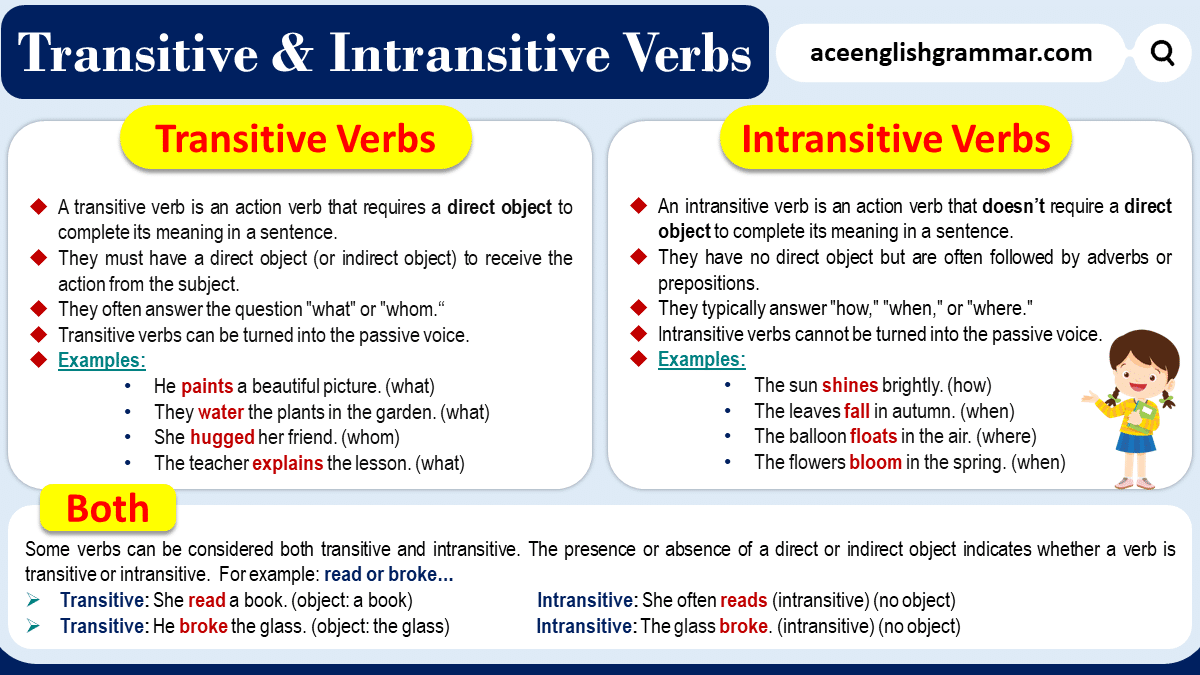Grammar can be a tricky subject for many, especially when it comes to understanding the difference between transitive and intransitive verbs. Knowing how to properly use these types of verbs can greatly improve your writing and communication skills.
Transitive and intransitive verbs play a crucial role in determining the structure of a sentence. By understanding the distinction between the two, you can enhance the clarity and effectiveness of your writing.
Grammar Transitive and Intransitive Verbs
Transitive verbs are action verbs that require a direct object to complete their meaning. In other words, a transitive verb transfers the action to someone or something. For example, in the sentence “She ate the apple,” the verb “ate” is transitive because it requires the direct object “the apple” to make sense. Without the direct object, the sentence would be incomplete.
In contrast, intransitive verbs do not require a direct object to complete their meaning. These verbs express actions that do not transfer to an object. For example, in the sentence “He sleeps peacefully,” the verb “sleeps” is intransitive because it does not require a direct object to make sense. The action of sleeping is complete in itself without the need for an object.
It is important to note that some verbs can function as both transitive and intransitive, depending on how they are used in a sentence. For example, the verb “run” can be transitive when used with a direct object (“She runs a marathon”) or intransitive when used without a direct object (“He runs every morning”).
Understanding the difference between transitive and intransitive verbs can help you construct clear and grammatically correct sentences. By identifying whether a verb requires a direct object or not, you can ensure that your writing is concise and effective.
Next time you are writing or speaking, pay attention to the verbs you use and determine whether they are transitive or intransitive. This awareness will help you communicate more effectively and improve your overall language skills.
In conclusion, mastering the usage of transitive and intransitive verbs is essential for enhancing your grammar skills. By understanding the role of direct objects in relation to verbs, you can create more coherent and structured sentences. Practice using transitive and intransitive verbs in your writing to become more proficient in grammar and communication.
